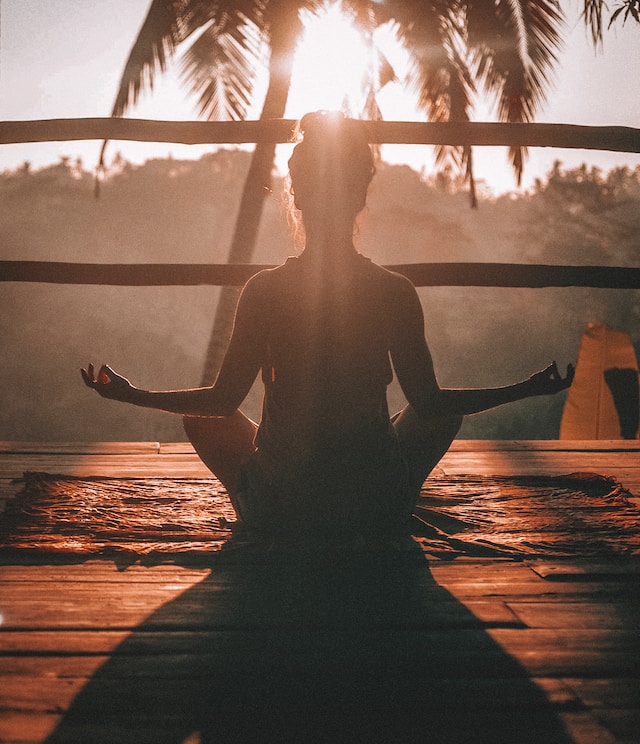In today’s fast-paced world, it’s easy to get caught up in the hustle and bustle of everyday life. We’re constantly bombarded with information, notifications, and distractions that can leave us feeling overwhelmed and stressed out. That’s where meditation comes in.
As someone who has struggled with anxiety and stress for years, I can personally attest to the power of meditation. It’s a simple yet effective way to calm the mind, reduce stress, and improve overall well-being. In this beginner’s guide to meditation, I’ll share some tips and tricks to help you get started on your own meditation journey.
What is Meditation?
At its core, meditation is a practice that involves focusing the mind on a specific object, thought, or activity. This can be anything from your breath to a mantra to a visualization. The goal of meditation is to quiet the mind and cultivate a sense of inner peace and calm.
Benefits of Meditation
The benefits of meditation are numerous and well-documented. Here are just a few:
– Reduces stress and anxiety
– Improves sleep
– Boosts immune function
– Increases feelings of well-being
– Enhances focus and concentration
– Lowers blood pressure
Getting Started
If you’re new to meditation, it can be overwhelming to know where to begin. Here are some tips to help you get started:
1. Find a quiet, comfortable space. It’s important to find a space where you can sit comfortably and without distractions. This could be a dedicated meditation room, a quiet corner of your home, or even a park or outdoor space.
2. Set a timer. To start, try meditating for just a few minutes at a time. Set a timer on your phone or use a meditation app to help keep track of time.
3. Focus on your breath. One of the simplest and most effective meditation techniques is to focus on your breath. Sit comfortably and close your eyes. Take a few deep breaths, then allow your breath to settle into its natural rhythm. Focus your attention on the sensation of your breath moving in and out of your body.
4. Don’t judge yourself. It’s common for your mind to wander during meditation. When you notice your mind has wandered, simply acknowledge the thought and gently bring your focus back to your breath. Don’t judge yourself or get frustrated – this is a normal part of the meditation process.
5. Practice regularly. Like any skill, meditation takes practice. Try to meditate for a few minutes each day, gradually increasing the amount of time you spend meditating as you become more comfortable with the practice.
Types of Meditation
There are many different types of meditation, each with its own unique benefits. Here are a few to consider:
– Mindfulness meditation: This involves focusing your attention on the present moment, without judgment or distraction.
– Loving-kindness meditation: This involves cultivating feelings of love, compassion, and kindness towards yourself and others.
– Transcendental meditation: This involves the use of a mantra, a specific word or phrase that is repeated silently to help quiet the mind.
– Body scan meditation: This involves focusing your attention on different parts of your body, from your toes to the top of your head, and noticing any sensations you feel.
Resources
If you’re interested in learning more about meditation, there are many resources available. Here are a few to check out:
– Headspace: A popular meditation app that offers guided meditations for beginners and advanced practitioners alike.
– Insight Timer: A free meditation app with a wide variety of guided meditations and a timer feature for unguided meditation.
– The Mindful Way Workbook: A comprehensive guide to mindfulness meditation, with exercises and activities to help you cultivate mindfulness in your daily life.
Conclusion
Meditation is a powerful tool for reducing stress, improving mental health, and enhancing overall well-being. By following these tips and exploring different types of meditation, you can start your own meditation practice and reap the benefits for yourself. Remember, like any skill, meditation takes practice – so be patient and kind with yourself as you embark on this journey.




